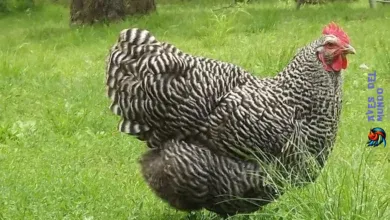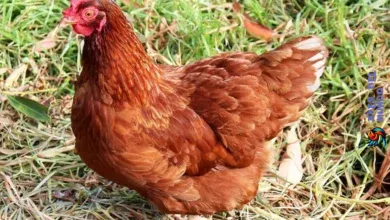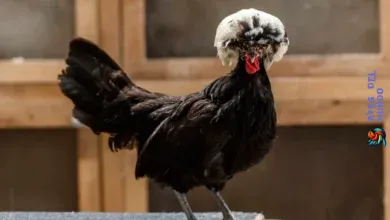Did you know that Silkies chickens are one of the most sought-after breeds in the poultry community? With their distinct appearance and gentle temperament, silkies have captured the hearts of backyard enthusiasts worldwide. Whether you’re a beginner or an experienced hobbyist, this article will provide you with essential tips to ensure the health and well-being of your silkie chickens. From choosing the right silkies to grooming, breeding, and common health concerns, we’ve got you covered. Let’s dive into the world of silkies and discover how to create a thriving environment for these delightful backyard pets.
Understanding the Silkie Chicken Breed
Silkies are a bantam breed of chicken known for their unique characteristics. Let’s explore more about the fascinating silkie chicken breed, including their appearance, colors, and temperament.
Fluffy Plumage and Blue-Black Skin
Silkies are easily recognized by their fluffy plumage, which feels soft and silk-like to the touch. Their feathers lack barbicels, which are the tiny hooks that help hold traditional feathers together, giving silkies a distinct appearance.
Aside from their fluffy feathers, silkie chickens also have unique blue-black skin, which is a distinguishing feature of this breed. The black pigment extends to their beaks, legs, and even their bones.
Various Silkie Chicken Colors
Silkies come in a range of colors, which adds to their charm and allure. The most common silkie chicken colors are:
- White: A pure white plumage that is highly sought after.
- Black: A solid black color with no other patterns or markings.
- Blue: A beautiful blue-gray color that has a smoky appearance.
- Buff: A pale gold or beige color, often with black skin pigment.
| Color | Description |
|---|---|
| White | A pure white plumage that is highly sought after. |
| Black | A solid black color with no other patterns or markings. |
| Blue | A beautiful blue-gray color that has a smoky appearance. |
| Buff | A pale gold or beige color, often with black skin pigment. |
Docile and Friendly Temperament
Silkies are known for their docile and friendly temperament, which makes them popular as pets for families and backyard enthusiasts. They have a gentle nature, making them a great choice for children. Silkies enjoy human interaction and can develop strong bonds with their owners.
While each silkie chicken may have its own personality, the breed as a whole is known for being calm, patient, and non-aggressive. This makes them an excellent choice for those looking to add a friendly and sociable chicken to their flock.
Overall, the unique appearance, various colors, and friendly temperament of silkie chickens have made them highly sought after in the poultry community. Whether you are a beginner or an experienced chicken keeper, silkie chickens are a delightful addition to any backyard.
Choosing and Caring for Silkies
When it comes to raising silkie chickens, choosing healthy birds and providing proper care is essential for their well-being. Here are some tips to help you create a nurturing environment for your silkies:
1. Selecting Healthy Silkie Chickens
When selecting silkies, look for birds with bright eyes, clean feathers, and active behavior. Avoid chickens displaying signs of illness, such as lethargy or discharge from the eyes or nostrils. Healthy silkies should have shiny, dense plumage without bald patches.
2. Providing a Safe and Spacious Coop
Ensure your silkie chickens have a safe and spacious coop that offers protection from predators. Make sure the coop is well-ventilated to maintain optimal air circulation. Silkies prefer sandy substrate as it is gentle on their sensitive feet.
3. Offering a Balanced Diet
Silkies thrive on a balanced diet consisting of high-quality chicken feed. Supplement their diet with fresh fruits, vegetables, and insects to provide additional nutrients. Ensure they have access to clean water at all times.
4. Regular Check-ups
To maintain the health of your silkies, schedule regular check-ups with a poultry veterinarian. They can monitor your chickens’ health, administer vaccinations if necessary, and provide guidance on preventing and treating common diseases.
By following these tips, you can ensure the well-being and happiness of your silkie chickens. Now let’s take a closer look at some of the common grooming practices for silkies in the next section.
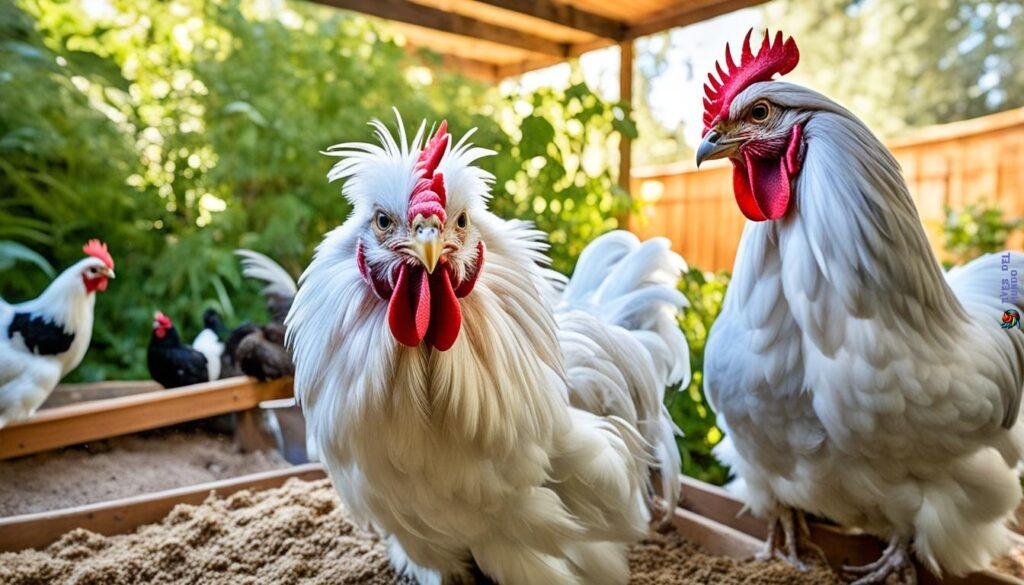
| Choosing and Caring for Silkies | |
|---|---|
| Step 1: Select healthy silkies with bright eyes, clean feathers, and active behavior. | Step 2: Provide a safe and spacious coop with proper ventilation to protect against predators. |
| Step 3: Offer a balanced diet of high-quality chicken feed, supplemented with fresh fruits, vegetables, and insects. | Step 4: Schedule regular check-ups with a poultry veterinarian to monitor their health and prevent diseases. |
Grooming Your Silkies
Silkies require regular grooming to maintain the health of their feathers. Due to their unique plumage, silkies are prone to matting and tangling, which can hinder their mobility and overall well-being. By incorporating grooming into your silkie chicken care routine, you can ensure that your feathered friends stay happy, healthy, and looking their best.
Brushing for Feather Maintenance
To prevent matting and tangles, it is essential to regularly brush your silkies’ feathers. Use a soft-bristle brush or a fine-toothed comb to gently glide through their plumage. Take extra care around sensitive areas such as the crest and tail, as they tend to accumulate more debris and require additional attention.
Pro tip: Ensure that the brush or comb you use is specifically designed for poultry to avoid any discomfort or harm to your silkies.
Bathing to Keep Plumage Clean
Bathing your silkies is an important part of their grooming routine and helps keep their plumage clean and free from debris. Fill a shallow basin or sink with lukewarm water and gently lower your silkie into the water, taking care not to submerge their head. Use your hand to wet their feathers thoroughly, paying attention to any soiled areas.
Pro tip: Adding a few drops of mild poultry shampoo to the water can help remove stubborn stains or dirt from their feathers.
After bathing, thoroughly rinse your silkie with clean water to remove all traces of shampoo. Take extra care to ensure that your silkie is completely dry before returning them to their coop or enclosure. Use a soft towel or a hairdryer on a low heat setting to gently dry their feathers. It is crucial to prevent your silkies from becoming chilled, so be sure they are fully dried before exposing them to cooler temperatures.
Caring for Feet and Beaks
Regularly inspect your silkies’ feet and beaks for cleanliness and trim any overgrown nails or beaks. Pay attention to any signs of injury, swelling, or abnormal growth. Keeping their feet and beaks well-maintained is essential for their comfort and overall health.
Pro tip: Use a pair of poultry nail clippers for trimming their nails and a sharp pair of scissors or beak trimmers for maintaining their beaks. Take great care not to cut too close to the quick or cause any injury to your silkies.
A well-groomed silkie will not only look beautiful but also feel comfortable and healthy. By regularly brushing, bathing, and caring for their feet and beaks, you can ensure that your silkies thrive and enjoy a high quality of life.
Breeding and Brooding Silkies
Breeding silkies can be a rewarding experience. These chickens are known to be broody, meaning they enjoy sitting on eggs and hatching them. If you decide to breed silkies, provide them with suitable nesting boxes and ensure a calm and stress-free environment. Silkies make excellent mothers and will care for their chicks diligently. However, it’s important to note that silkies can have difficulty hatching eggs due to their fluffy feathers, so assistance may be required during the hatching process.
| Benefits of Breeding Silkies: | Considerations for Breeding Silkies: |
|---|---|
|
|
When breeding silkies, it’s essential to ensure the proper well-being and health of both the parent birds and the chicks. The gentle nature of silkies makes them excellent candidates for raising baby chicks, as they exhibit exceptional maternal instincts. However, as their feathers are incredibly fluffy, silkies may require extra assistance during the hatching process due to potential difficulties caused by their unique plumage.
Overall, breeding and brooding silkies can be a fulfilling endeavor for backyard enthusiasts and poultry lovers. With the right preparation and care, you can witness the miracle of life as silkie chicks hatch and grow into healthy and charming birds.
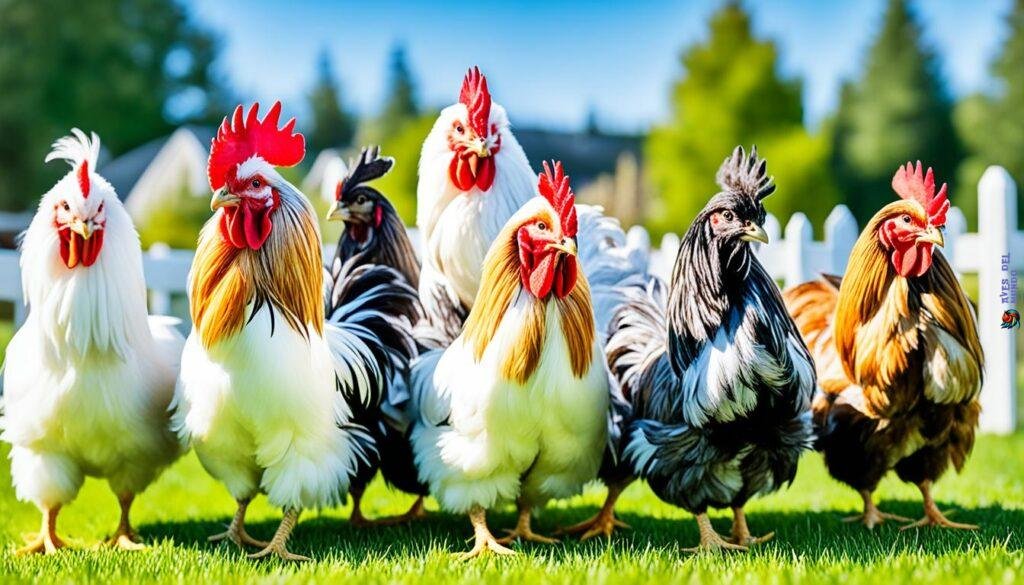
Health Concerns and Common Issues
While silkie chickens are generally hardy and healthy, it’s important to be aware of common health concerns that can affect them. By understanding these potential issues, you can take proactive measures to maintain the well-being of your flock. Here are some health concerns to watch out for:
- Respiratory Infections: Silkie chickens are susceptible to respiratory infections, which can manifest as sneezing, coughing, and nasal discharge. If you notice any signs of respiratory distress, it’s crucial to isolate the affected bird and seek veterinary attention.
- Parasites: External parasites, such as mites and lice, can infest silkies and cause discomfort. Regularly inspect your chickens for any signs of parasitic infestations, including feather loss, irritability, and visible insects. Implementing a regular parasite prevention and treatment routine can help keep your flock healthy.
- Bumblefoot: Bumblefoot is a bacterial infection that affects a chicken’s footpad. This condition can lead to swelling, redness, and the formation of abscesses. To prevent bumblefoot, provide a clean and well-maintained coop environment and regularly inspect your silkies’ feet for any signs of injury or infection.
Regular observation is key in detecting any health issues early on. By paying attention to your silkies’ behavior, appetite, and overall appearance, you can identify any abnormal signs and take appropriate action. Additionally, maintaining a clean and hygienic living environment for your flock is vital in preventing the spread of diseases.
In case of any concerns or unusual behaviors, consult with a veterinarian experienced in poultry care. They can provide guidance and recommend appropriate treatments to ensure the well-being of your silkie chickens.
Silkies as Egg Layers
Silkies are known for their unique appearance and gentle temperament, making them a popular choice as backyard pets. However, if you’re looking for chickens that lay a large number of eggs, silkies may not be the best option. These chickens tend to lay a smaller number of eggs compared to other breeds.
Although silkies may not be prolific egg layers, their eggs are highly prized for their rich and flavorful yolk. If you value quality over quantity, silkies’ eggs are considered a delicacy and can be a delightful addition to your culinary endeavors.
It’s important to note that not all silkies will lay eggs. Some individuals may be more inclined towards brooding behavior, preferring to sit on eggs and hatch them rather than laying a significant number of eggs themselves.
If you’re interested in raising silkie chickens primarily for egg production, it may be wise to consider other breeds. However, if you appreciate the unique qualities and beauty of silkies, they can still provide a small but valuable addition to your backyard flock.
Key Points:
- Silkies lay fewer eggs compared to other chicken breeds.
- Their eggs are prized for their rich and flavorful yolk.
- Not all silkies will lay eggs; some may exhibit brooding behavior.
- If you prioritize high egg production, consider alternative breeds.
- Silkies can still be a valuable addition to your backyard flock due to their unique appearance and gentle temperament.
Fun Facts About Silkies
Silkies have captured the hearts of poultry enthusiasts worldwide, and there are some interesting facts about this breed. Silkies are prized for their appearance in poultry shows and exhibitions, where their unique feathering is showcased. They are also known for their gentle nature, which makes them great companions for children.
Additionally, silkies have been mentioned in ancient Chinese texts, and their origin has been traced back to ancient China. With their striking appearance and wonderful personalities, silkies are truly a one-of-a-kind chicken breed.
Finding Silkies for Sale
If you’re interested in adding silkies to your backyard flock, there are various ways to find them for sale. Local poultry breeders, online marketplaces, and poultry shows are common sources for purchasing silkies.
When searching for silkies for sale, it’s important to take the time to research reputable breeders or sellers. This ensures that you are acquiring healthy and well-cared-for silkies. Look for breeders who prioritize the well-being of their chickens and provide proper care and attention.
Consider reaching out to local poultry associations or forums for recommendations and guidance in finding silkies for sale. These communities often have valuable insights and can connect you with trustworthy breeders who specialize in silkies. Connecting with fellow enthusiasts can provide you with valuable advice and recommendations based on their own experiences.

